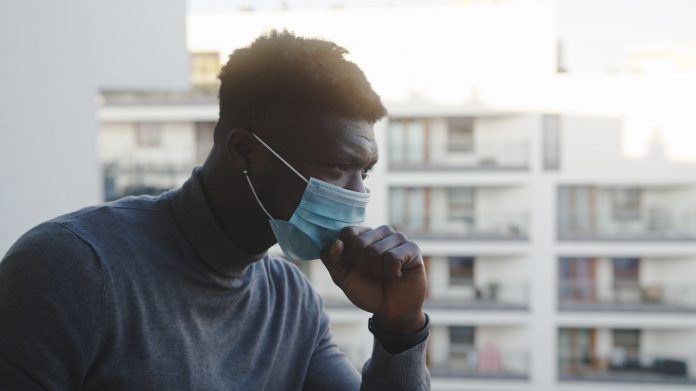Medical Reviewer & Addiction Advocate, Ray Sadoun, shares his thoughts on the extent of mental health in the UK during the COVID-19 pandemic
Studies show that people have suffered more in terms of mental health during this pandemic. According to a study carried out by the Institute for Fiscal Studies, mental health has deteriorated by 8.1% in the UK. (1) Aside from diagnosed mental health conditions, people are generally finding themselves worrying more. Most of this worry is centred around uncertainty as we cannot accurately predict the path of COVID-19. Ruminating over future possibilities is a classic sign of Generalised Anxiety Disorder. Another way in which Brits have been struggling with mental health is a fear of socialising. Following the lifting of restrictions in July, many people are concerned about interacting with others as we have spent so long inside, so they are at risk of developing social anxiety.
Groups who are struggling with mental health
When it comes to young people in the UK, they have missed out on so many important milestones. As a mental health therapist, I always encourage parents to let their children and teens socialise as much as they can as friendships teach young people so much about the world. However, throughout the pandemic, young people have been isolated from their friends, which is bound to create feelings of disappointment and anger.
People of colour have also lost out on so much as a result of the pandemic. Infection rates are higher among people of colour, which has understandably created anxiety within the community. Furthermore, we know that members of the BAME community may find it difficult to trust authorities due to a history of abuse and neglect. This means that the failings of the government are even harder to handle for this community as it exposes unjust hypocrisy.
Another group that has struggled severely is people living in deprivation. Many families have dealt with financial insecurity, meaning their quality of life has deteriorated since before the pandemic started. Moreover, the lack of support concerning childcare has meant that many families have had to reduce their work hours to home-school their children. Not only is this problematic from a financial point of view, but it is an extremely stressful task that parents have not been prepared for. Families living in deprivation may struggle to provide their children with laptops, textbooks and desks, which means these children have suffered more in terms of a lack of education.
The NHS and mental health
There have been many failings when it comes to mental health, but the NHS’s plan to provide resources more quickly is a huge step in the right direction. Waiting for help can be deadly, as mental illness spirals out of control very quickly. When people can access help quickly, they do not have to experience dangerous symptoms of mental health as they can access the medication and therapy that they need.
Having said that, we cannot transform mental health treatment in the UK until the NHS is sufficiently funded. The main problem is long waiting lists, as patients find themselves either significantly deteriorating while they wait for help, or convincing themselves that they no longer need professional support. We need to take advantage of people’s desire to get help; the sooner they are treated, the easier their symptoms will be to treat.
It is also incredibly important that we offer as many face-to-face appointments as possible, in line with the appropriate restrictions. People have been missing face-to-face connections and it isn’t easy for everyone to open up over Zoom or Skype. As for the people who cannot access the internet, it is imperative that they access in-person therapy to work on their mental health. Finally, I believe we need more intense forms of therapy available on the NHS rather than self-help treatment. As useful as this can be for some patients, it is not acceptable for patients dealing with severe anxiety or depression to be offered low-intensity counselling that will not treat their severe symptoms.
Supporting mental health during the pandemic
In July, NHS England reported that their mental health phone lines have responded to approximately three million calls during the COVID-19 pandemic. The 24/7 NHS mental health crisis helplines were fast-tracked to open during Summer 2020 so that rapid care could be offered without having to go to A&E. Mental health professionals staff the lines and can refer callers to local urgent, routine and acute mental health services. This can be done by phone and video consultations, plus urgent in-person assessments if required. (1)
Tim Kendall, National Clinical Director for Mental Health chairs several committees to implement the national mental health strategies and heads programmes concerning the impact of COVID, amongst other areas. (2) Tim recently detailed his thoughts on how the NHS has supported mental health during the COVID-19 pandemic so far.
“Our NHS and mental health and care staff have worked tirelessly to ensure mental health crisis lines were stood up ahead of schedule to support people over what has been an incredibly challenging year and I am thankful for all their work.
“Throughout the pandemic these local helplines have acted as a beacon of hope for anyone experiencing a mental health crisis, ensuring help is always available to people when they need it most.
“Our mental health services have remained open for business, and our Mental Health Recovery Action Plan backed by £500 million will ensure we are able to continue to support the public as we look to the future. I would urge anyone who is struggling to reach out, help is there for you.”
The NHS has a bold ambition for these mental health phone lines to be connected to NHS 111 by 2024.
References











